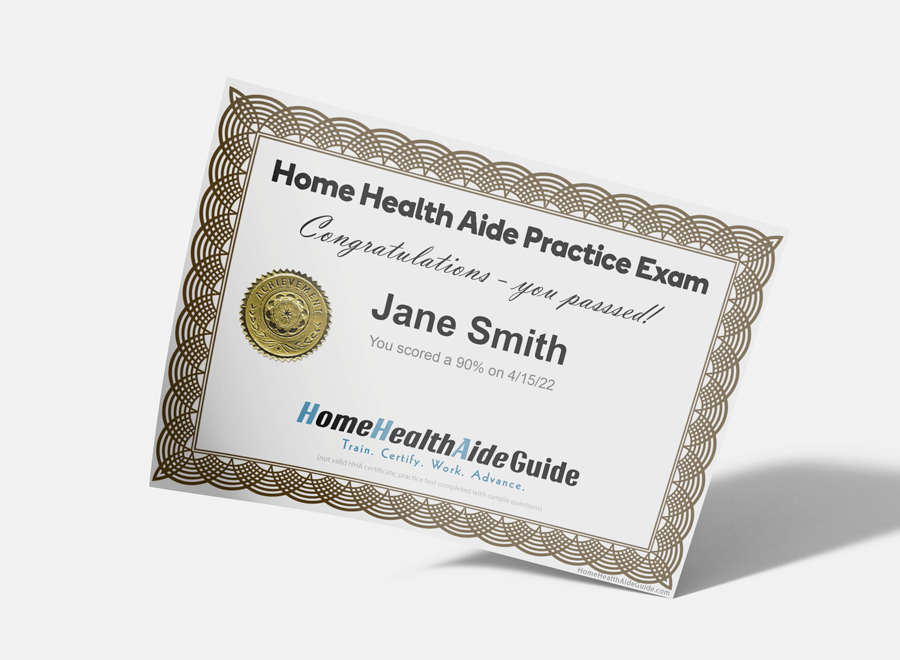Financial Aid for HHA Training: Opportunities and Assistance
Home Health Aides (HHAs) are a vital part of the healthcare industry, providing essential services that allow individuals to receive care in the comfort of their own homes. They assist with daily living activities and healthcare routines, often for the elderly, or those with disabilities or chronic illnesses. To excel in this role, proper training and certification are crucial, as they ensure HHAs are adequately prepared for the diverse needs of their clients.
Training for this career path can be costly, but numerous opportunities exist to alleviate the financial burden. From free classes to scholarships and federal assistance, those interested in becoming HHAs have various financial aid options. Let’s explore these avenues to begin a rewarding career in home health care without the stress of overwhelming training expenses.
Exploring Free HHA Classes Near You
For those looking to start their HHA training without the financial strain, free HHA classes could be a viable option. Several organizations and healthcare facilities offer no-cost training programs as a way to invest in potential employees. They provide the necessary knowledge and hands-on experience while making the career more accessible.
- Free HHA Training Resources:
- Community colleges
- Vocational schools
- Healthcare providers
- Online educational platforms
To find these programs in your area, it’s beneficial to conduct local research, network with healthcare professionals, and explore community job training initiatives. Check with local department of public health services or job centers, as they often have lists of accredited training options available.
Nursing homes are hiring HHA’s – don’t miss your chance!
SNAP HHA Free Training Programs
The Supplemental Nutrition Assistance Program (SNAP), known for providing food-purchasing assistance, also offers a lesser-known benefit: SNAP HHA free training. These programs are specifically designed for individuals currently receiving SNAP benefits, aiming to expand their skill sets and enhance employability in high-demand sectors like home health care.
- Eligibility Criteria for SNAP-Associated Training:
- Current receipt of SNAP benefits
- Meeting work requirements stipulated by SNAP
- Residency in a state that offers SNAP Employment and Training Programs
Participants interested in this HHA training must confirm their eligibility and apply through their local SNAP office. The application process varies by state but generally includes proof of SNAP benefits, income verification, and other personal documentation.
The Path to Getting HHA Certified
Becoming a certified HHA not only verifies your skills but also opens up a wider range of employment opportunities. Certification is typically obtained after completing a state-approved training program and passing a competency evaluation.

The steps involved in becoming a certified HHA usually include:
- Enrolling in a state-approved training program.
- Completing the required training hours, both in the classroom and through practical experience.
- Passing a comprehensive exam that may include both written and practical components.
Certification requirements can differ by state, so it’s imperative to familiarize yourself with local regulations and select an appropriate program that aligns with these criteria.
Financial Aid Options for HHA Students
Fortunately for those pursuing a career as an HHA, a variety of financial aid options are available:
- Federal Financial Aid Programs:
- The Pell Grant
- Federal Work-Study
- Federal Supplemental Educational Opportunity Grant (FSEOG)
- State-Specific Aid:
- State grants and scholarships
- Workforce development programs
Additionally, aspiring HHAs can investigate scholarships and grants offered by professional organizations, nonprofits, or training institutions. Some employers may even provide tuition assistance or reimbursement programs to encourage career development within their workforce.
Research and apply to financial aid programs early to secure funding for your HHA training. Keep in mind that some scholarships have prerequisites, like essay writing or maintaining a certain GPA, so be prepared for these requirements.
HHA State Salaries and the Impact of Financial Aid
The salary for HHAs can vary depending on the state of employment, experience, and level of certification. An overview of HHA state salaries and employment indicates a range that prospective HHAs should consider when planning their career path.
Financial aid can affect this dynamic by:
- Reducing student loan debt, increasing take-home pay after certification
- Providing an opportunity for higher-quality training, leading to better job placements
HHA Salary Range by State (example):
| State | Average Salary |
|---|---|
| Alabama | $23,000 |
| California | $35,000 |
| New York | $34,000 |
It’s important to weigh the potential return on investment when considering HHA training and the impact financial aid can have on overall career satisfaction and financial stability.
Conclusion: Building a Foundation for a Rewarding Career
In wrapping up, the financial aid opportunities for HHA training are varied and multifaceted. With resources like free training programs, federal and state aid, plus scholarships and grants, a career as a home health aide is accessible to many. It’s essential to harness these resources, aligning educational pursuits with financial support systems, to establish a durable foundation for a rewarding career in home health care.
Embark on this journey with the right backing, and high-quality training can lead to personal fulfillment and professional growth within a rapidly expanding sector of healthcare.
Key Takeaways
Key Takeaways: Financial Aid for Home Health Aide Training
Opportunities for Financial Support
- Free HHA Training: Accessible through community colleges, vocational schools, healthcare providers, and online platforms.
- SNAP Training Programs: Free HHA training for individuals on SNAP benefits, enhancing employability in home health care.
- Certification Pathway: Enrollment in state-approved programs and passing necessary exams for HHA certification.
- Federal and State Aid: Grants, work-study, and development programs such as Pell Grants and FSEOG.
- Scholarships and Grants: Offered by professional organizations, nonprofits, or direct employer assistance.
Salary Outlook and Financial Aid Impact
- HHA Salary Variances: Depending on the state, salaries for HHAs can range significantly.
- Financial Aid Benefits: Reduces student loan debt and potentially leads to better-paying job opportunities.
Salary Examples by State
| State | Average Salary |
|---|---|
| Alabama | $23,000 |
| California | $35,000 |
| New York | $34,000 |
Career Advancement and Education
- Investing in Education: Utilizing financial aid options to offset training costs and pursue a career in home health care.
- Long-term Benefits: Financial aid can lead to advanced training, superior job placements, and increased job satisfaction.
By leveraging the available financial assistance, aspiring home health aides can embark on a meaningful career path in a growing field with reduced financial stress and enhanced prospects for success.



